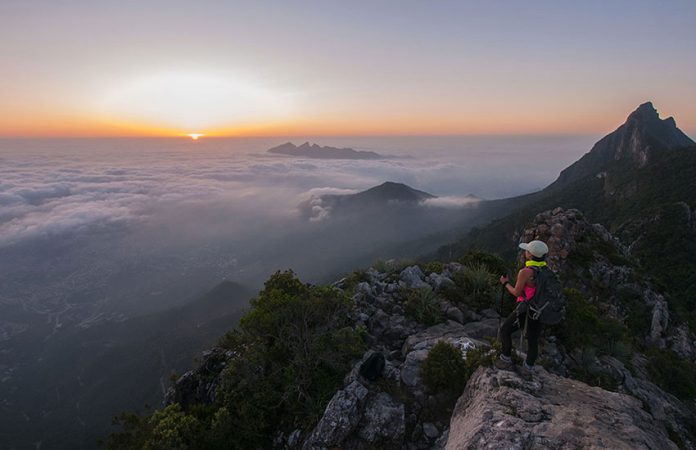The city of Monterrey, one of Mexico’s largest, is nestled in the foothills of the Sierra Madre Oriental mountain range, surrounded by soaring peaks, knife-blade ridges and countless hiking trails. It’s no misnomer that the city’s name means “King of the Mountains” in Spanish.
As for the “king” of Monterrey’s hiking clubs, I’d say that honor goes to an organization known as the La Comunidad Bakpak, which sprang into existence, along with the first publication of Bakpak Revista de Aventura (Bakpak Magazine), in 2005.
I asked the leader of Bakpak Community, Alejandro González, to describe five great hiking destinations that people could reach from his hometown.
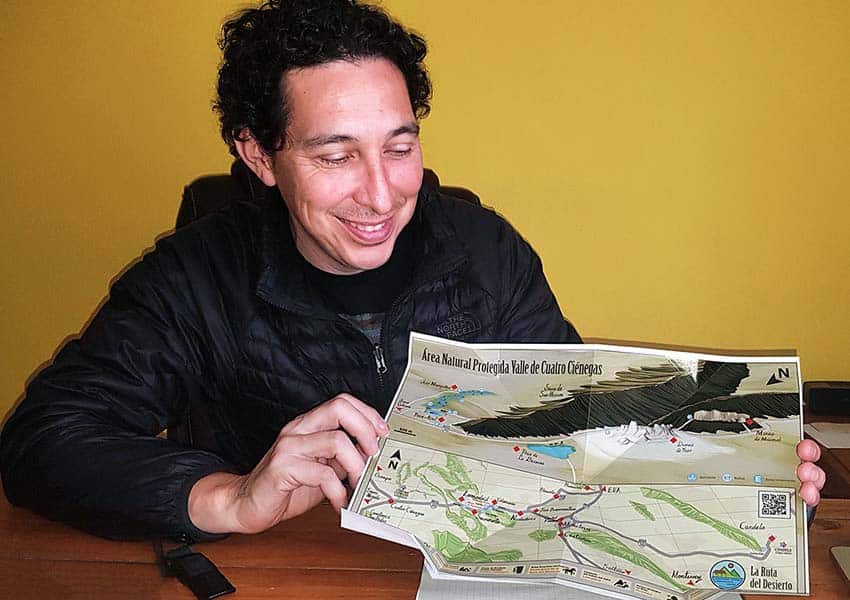
“I’ll do better than that,” he replied with a smile. “I’ll tell you about five excellent hikes you can do without leaving Monterrey’s city limits.”
Cerro de la Silla (Saddle Mountain)
“This is probably the favorite hike of the people of Monterrey,” said González, “and the Cerro de la Silla is definitely the iconic symbol of the city. People like to hike up to The Saddle in the morning or in the evening along a trail called La Brecha de la Virgen (Trail of the Virgin), and you will in fact find several little shrines [to her] along the way.”
I learned that Saddle Mountain has two famous landmarks. The first is called El Teleférico. It was a 3.3-kilometer cable car system inaugurated in 1961 and closed in 1964 after two tragic accidents.
“A hike from the city streets up to this point would be suitable for beginners and might take one hour,” González said. “From here, you can see just about all of Monterrey. This is also a great place to enjoy a magnificent sunset over the town, should you decide to do the hike in the late afternoon.”
From the Teleférico, the trail goes on to the second landmark of Saddle Mountain: the summit, which is another impressive lookout point from which you have a 360-degree view of the city.
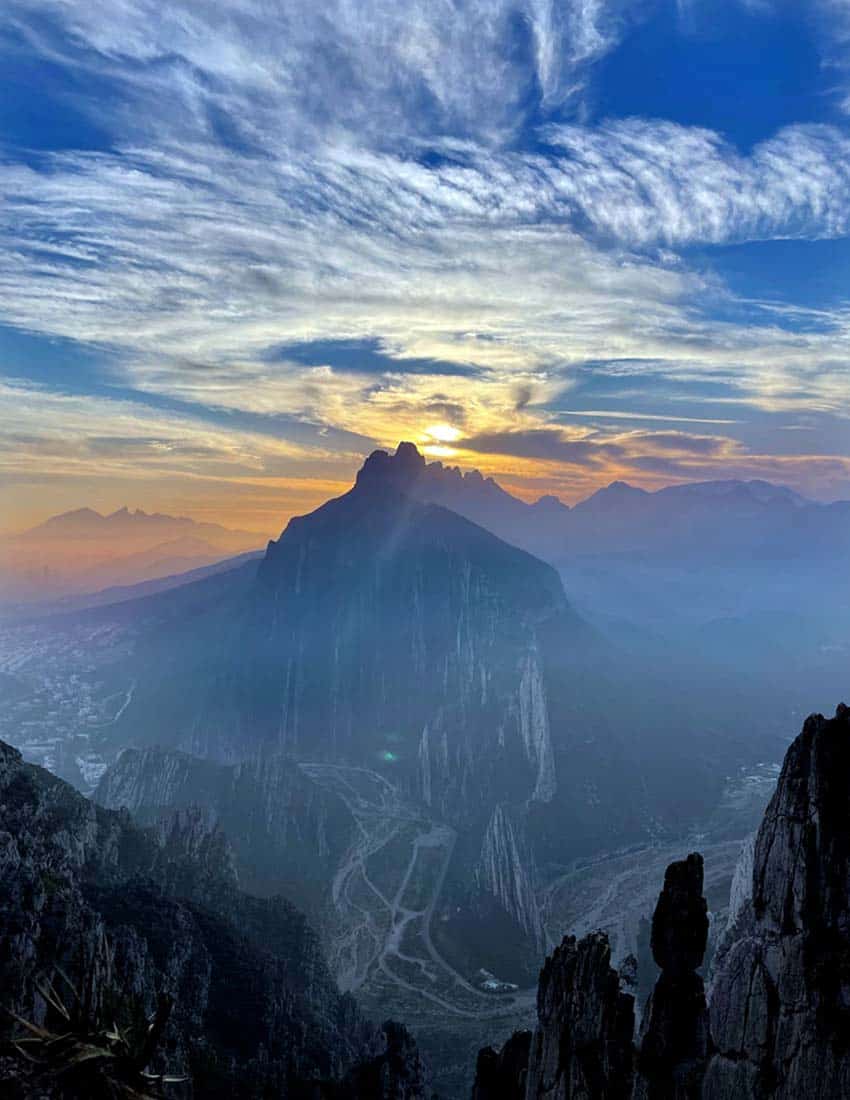
This part of the hike, says González, is for experienced people, and you may need another 90 minutes to hoof it from the Teleférico to the peak.
Chipinque Ecological Park
This is a luxuriant pine and oak forest that was developed into a recreational area by private companies. The result is one of Mexico’s most beautiful and best-organized parks, with over 60 kilometers of trails. It’s set up very much like the national parks in the United States, complete with rangers.
Chipinque is, first of all, a nature reserve. It is especially famous for its great variety of butterflies, but here you will find everything from white-tailed deer and gray foxes to pumas and even black bears. If you are lucky, you might also glimpse the Mexican coati, an omnivorous member of the raccoon family.
As for birds, in Chipinque you can see wild turkeys, mountain pygmy owls, red-tailed hawks and blue-capped motmots.
According to González, among Comunidad Bakpak’s most popular activities in Monterrey is their Night Trail Run under the Autumn Moon, which they organize in Chipinque Park.
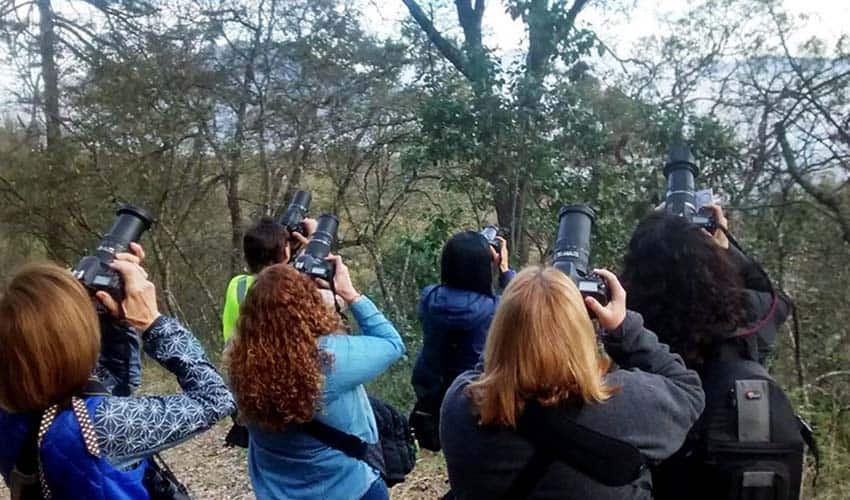
“This is directed at helping people experience nature through their five senses, to gain new awareness,” he said.
Because El Chipinque is located 15 kilometers from downtown Monterrey, people can do either day or night hikes, soak up the good vibrations and then go back home to sleep in their beds.
La Huasteca Ecopark
La Huasteca is a municipal park whose entrance is located only 20 minutes from downtown Monterrey. This is a massive canyon with long, thin, high limestone mountains running along both sides like giant knife blades: a sight that boggles the mind.
The park is a paradise for rock and mountain climbers, with nearly 400 bolted routes.
“La Huasteca is a place of silence and solitude,” González said. “In this park, you have lots of choices both for climbing and for hiking — in fact, even for trekking. Here you can go walking for 80 kilometers, if you want to!”
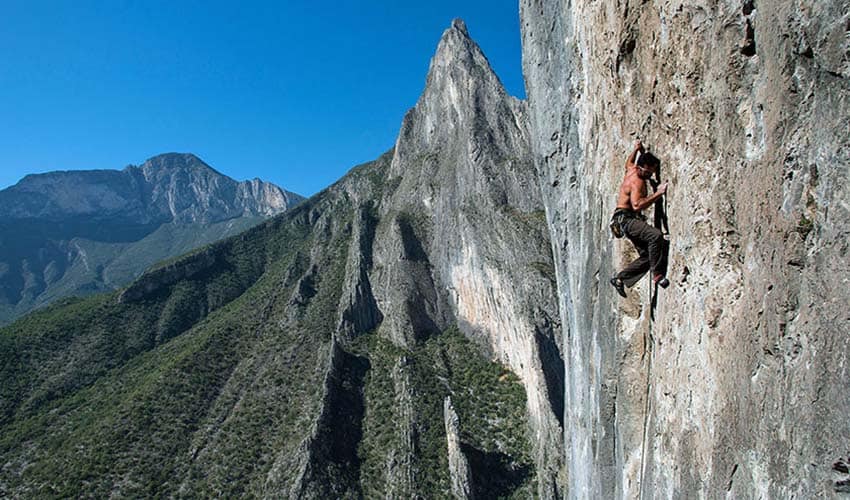
El Santiago
This is a Pueblo Mágico (Magical Town) located inside the city limits of Monterrey, just a 20-minute drive from downtown. From Santiago, you can visit a lovely waterfall called Cola de Caballo.
It’s a 40-minute walk from town to waterfall, but note that you’ll be walking through a very touristy area.
If you’re more in the market for high adventure, note that Santiago just happens to be the portal to several gorgeous canyons: San Cristóbal, Chipitín, Matacanes and Hidrofobia
These attract canyoneers from all over the world but require great technical skill and lots of experience.
“Whether you hike to the waterfall or rappel down a canyon,” says González, “you are bound to work up an appetite, and Santiago just happens to have lots of great places to eat. Here you can experience the cuisine of northern Mexico. For example, machaca — in Santiago, you will find the original, the real thing.”
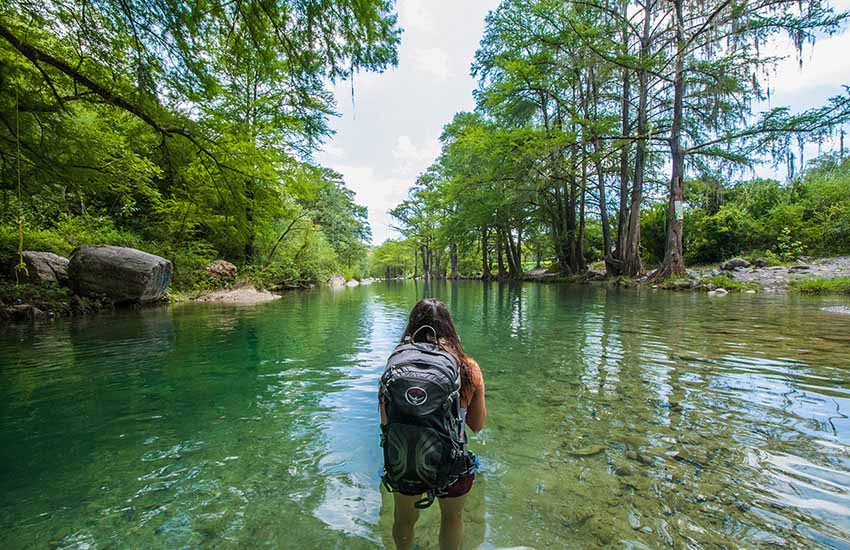
El Río Ramos
“This is a forest of sabinos, or Montezuma cypresses, along a river,” says González. “The walk takes you to the town of Cozumelito, and along the way we find turquoise blue pools of water. Here you can swim in perfectly clean water and you could hike for as many as 16 kilometers.”
González recommends reaching Río Ramos very early in the morning — especially in the summer — “when you will find the water crystal-clear and you can hear the birds singing.”
If you’re heading for Monterrey and want to experience nature while you’re there, you can contact the Bakpak Community through their website or their Facebook page.
The writer has lived near Guadalajara, Jalisco, since 1985. His most recent book is Outdoors in Western Mexico, Volume Three. More of his writing can be found on his blog.
